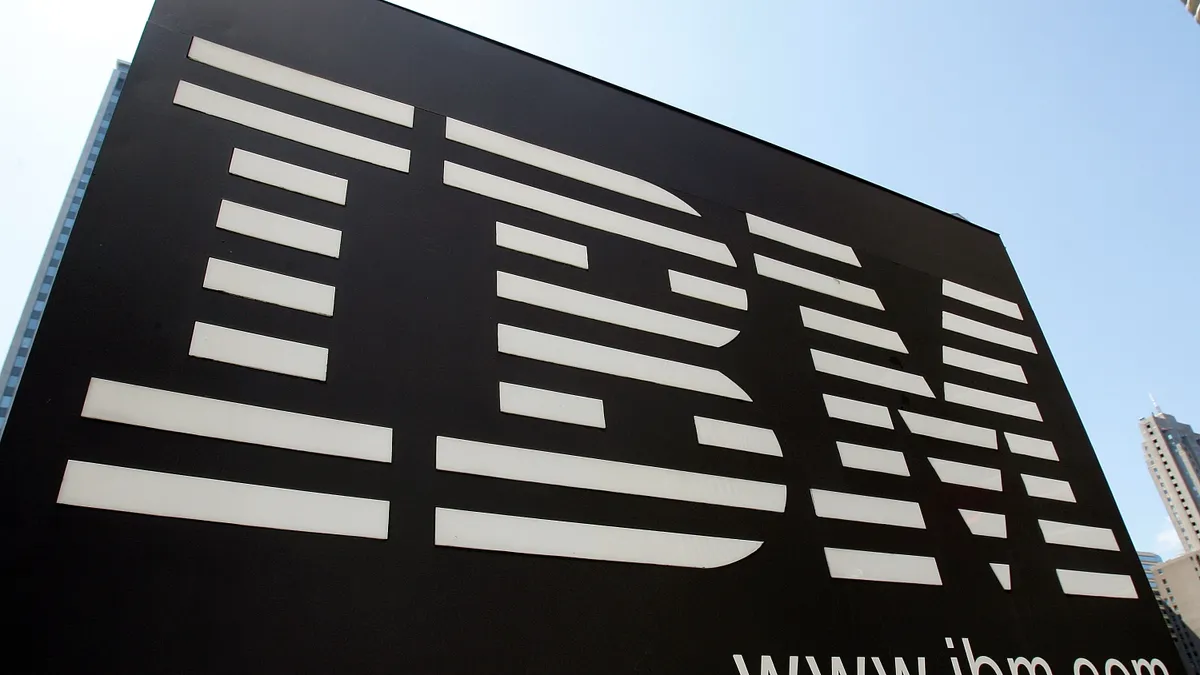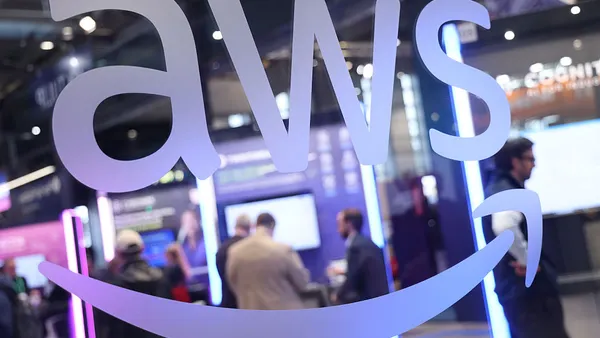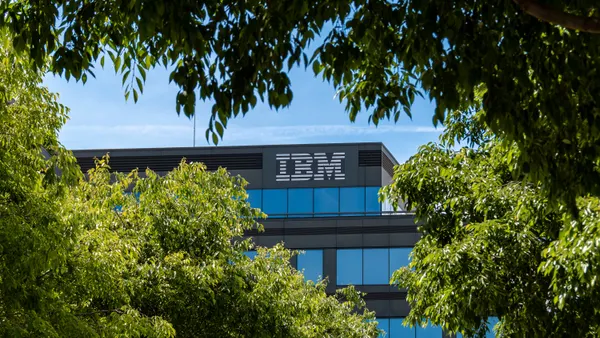Dive Brief:
- IBM is leaning hard on its consulting practice to differentiate its AI business and help customers implement the technology safely, the company detailed Wednesday, during a Q4 2023 earnings call.
- The strategy intentionally mirrors the company’s integration of open-source software provider Red Hat into its hybrid cloud division, according to Arvind Krishna, IBM’s chairman and CEO. “Just as we quickly ramped a meaningful practice around Red Hat to address the hybrid cloud opportunity, we are on a similar trajectory with generative AI,” Krishna said Wednesday.
- The company’s revenue grew 3% year over year in Q4, with software and consulting, IBM’s two largest segments, posting year-over-year gains of 2% and 5%, respectively. Software and consulting currently account for three-quarters of the company’s revenue base, Krishna said, up from just over half in 2020.
Dive Insight:
Hybrid cloud and AI are cornerstones of IBM’s consulting practice.
As organizations grapple with the twin challenges of integrating on-prem systems with cloud and implementing AI solutions safely, the technology provider is bundling its expertise with solutions.
In addition to attaching a governance toolkit to its watsonx multimodel AI platform, the company rolled out an AI consulting services platform to assist its teams in their client work last week.
“The early work for clients around data architecture, security, and governance is critical and hard, and we think consulting expertise is going to be crucial here,” Krishna said.
The company recently partnered with ERP giant SAP to develop AI solutions for retail and consumer goods businesses and is working with Adobe to embed watsonx capabilities into their platform, Krishna said.
“Every client I speak with is asking about how to boost productivity with AI and how to manage their technology stack, much of which is deployed across a hybrid environment, public, private and on-premises,” Krishna said.
IBM has fortified its hybrid cloud and AI business through strategic acquisitions, most recently announcing its intention to purchase Advanced’s mainframe modernization unit.
“Focusing our portfolio remains a key priority,” Krishna said. “We completed nine acquisitions this year, including Apptio, and we recently announced the acquisition of StreamSets and webMethods from Software AG, which we expect to close midyear.”
CFO James Kavanaugh stressed internal optimization efforts will carry over from last year.
“We remain laser-focused on our productivity initiatives as we digitally transform our business processes and scale AI within IBM,” Kavanaugh said. “This includes simplifying our application and infrastructure environments, streamlining our supply chain, aligning our teams by workflow, reducing our real estate footprint and enabling a higher value-added workforce through automation and AI-driven efficiencies.”
Kavanaugh said restructuring will lead to workforce readjustments consistent with 2023 levels. IBM laid off 3,900 workers at the start of last year.
The rebalancing will impact "a very low single digit percentage of IBM’s workforce" and the company expects to exit 2024 without significant headcount reduction, an IBM spokesperson told CIO Dive.















